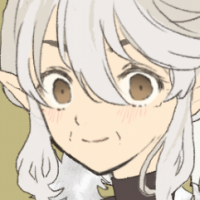Best Of
Re: Announce Post #3326: Roadmap for Lusternia
Family Honour (Xenthos)
Over the years many, many reports have been submitted trying to tweak this in varying ways, but they just all get rejected basically saying "we don't believe this is necessary." From the player end, just judging by the reports themselves the consensus seems to be quite in favour of changes (and some were pretty drastic). I'd like to know if family honour, as it currently exists, is considered to be in an OK state from your perspective / not requiring changes?
And, if not, is there a way to get an idea of what changes you would be willing to consider so we can orient future suggestions to that? At the moment it kinda feels like we're throwing darts blindfolded on this one, so a bit of a guiding path would be very appreciated!
Crafts (Tikki)
Firstly let me say thanks Uilani and crew for being so patient with some of the heavier questions that were thrown about over the course of this! Despite anything, the fact that you're all willing to take time out of your days, your lives, to put forth the effort into trying to better the game does say a lot, whether we always agree on the ideas or not, y'all are trying, so thank you!
I wasn't 100% if my questions fit in any earlier segment, so figured it's more of a misc. sort of question, as it's sort of tied to RP and Crafting, in a way. Anyway, firstly! As it stands now, there's no real way for players to set precedents for expansion of design and the like. That's not to say that the new patterns and such that we get aren't appreciated, because as I'm sure as you've all seen they are. Is there any possible way, or would it be something that staff would consider, to expand on what players can do with progress in crafting? Be it things like going thru RP to invent a new type of dish or figuring out ways to make types of cloth that may not have been previously accessible?
There's been a lot of focus on questions leaning towards the more combat oriented side of things, so I figured as one of the resident non-coms, I'd ask. I'm aware a big focus of the game itself IS on the conflict at the PVP aspects of the game, I'm just hopeful that there could be more ways for players to leave a mark on the world outside of things like Ascension or player ran events. Something that can help players feel like their in a living, breathing world, and contribute to the beating heart of its growth in little ways.
My second question, which sort of ties into things is: can there be or would it be possible to have more transparency with the Charites? I think a great idea for that would be having a sort of, much like this, a roundtable thing now and again where players could discuss with the design board on expansions or appeal more broad rejections that don't really fit into the comment sections of a particular design. At times designing things can feel like walking around landmines because we're never entirely certain what's going to be okay one day and then suddenly another design of the same kind goes in queue, gets rejected, and then possibly gets other things retroactively nuked. So having some way to have broader, more open and transparent discussions about these sorts of things I think would be very beneficial. That being said I'm certain it's a time and resources issue as well, but yeah.
I think there is room for something like this but not on a personal request basis. Should the Charites, or someone else, have the time to run some sort of contest to try to invent a new material (or something else), we could make it happen. Then accept what makes sense and introduce it to the world. Any such idea/request for a contest should be posted to the Crafts board. A vast majority of design patterns comes from there and various adjustments have been made based on posts too. So if you have an idea for, say, a a new material contest or something, go for it. Post away and we'll see.
We definitely can't make it happen on a more personal request basis though. Whether the addition would be done in an IC or OOC way, it is bound to be problematic and tempers would flare - why this person's and not mine. The Charites do not stray from their duties because of difficulties like that. Most of the time they also do not have time for such extras, even if they wanted to, because designers continue to try to push boundries of the design system (most often attempts to 'see if you can slip it through' result in hours of work for multiple people). They handle endless flags, messages, contestations, reviewers, and lots of unhappiness on a daily basis.
This also covers the second question to an extent. I'm afraid the Charites cannot be hosting a roundtable. They make their decisions based on research and collaboration, and cannot answer rapid fire questions or challenges. If you would like to request something, you can post to the Crafts board. I assure you though that no decision comes down from the Charites without thorough discussions and consideration, and so is unlikely to be overturned. People don't join that department because they enjoy saying no. They want to make your dreams reality, but they also have rules to uphold and a system to maintain functional. Unfortunately, things do get through the system sometimes which shouldn't and have to be recalled. Leaving them in creates precedent that gets thrown in the Charites faces the next time it happens. Our design system is more difficult and different from, say, Aetolia's or Achaea's, but it is so because we maintain much higher standards of adherence to lore and theme of the game than are maintained anywhere else. And this does not apply just to crafts, but most everything else.
 Uilani
Uilani
Re: Descriptions: From Divines to Mortals, and Beasts, and Items, and Mobs, and Places!
Huskii proudly shows off a sketch of an alien looking bluebell flower:
An alarming shade of magenta, this flower sets itself apart from normal bluebells in not just color, but in size. Growing to at least twice the size of the other bluebell flowers it grows aside, the only trait it shares it the same muted, slender stalk on which the flower sits.
 Xiran
Xiran
Re: Org Reduction
We do need to consolidate our efforts and creativity to present a more vibrant world for old and new players, and reducing the number of orgs may be a way to do that.
While Serenwilde has a decent population, we do not have a Portal-touched teacher present at all hours of the weave. Teachers are perhaps the first interaction new players have with a real person, which has a great influence on them deciding if they like the flavour of a game as a whole and the culture of the organisation they have joined.
Second, in every org you can see people pulling double-duty when you look at both HELP <org> and CARTELS <of that org>. (Often names appear again in the appointed positions of HELP <org guilds>.) Technically the game system was designed to dissuade someone holding both an elected and a ministry position, but necessity has led to this. This also does not make visible whether some folk have turned to slumber and the org leader is filling in.
Various leadership positions (including ministries, guild, and Divine orders) have tools for player-run activities that continue to build an org's roleplay and culture. When people ask what they can do for the game, I would point to leading or joining in player-run activities and building off each other. This is important so that we are not reduced to a habit of running between conflict activities and admin-run events as all there is to the game.
The fondest memories I have of this game are of interactions with fellow players, and I hope another generation gets to enjoy the same thing. The quieter an org is, the fewer opportunities there are for that.
 Xiran
Xiran
Re: Improving the Newbie Experience
Re: Alliance System
Re: Alliance System
All we want in an alliance system:
combat balance around limiting numbers. If alliance A has 5 in area then allowed Alliance B in combat event also 5 end. (maybe not a direct 1:1 but you get the idea)
alliancetell
alliancehelp/log
All the things we get out of a clan as a formal 'group'. Nothing more (outside using membership into that 'group' for balancing combat events)
You (admin) are making systems more complex than needs to be. You are trying to make reasons for something when simple and basic is better.
 Ayisdra
Ayisdra
Org Policies
Hi all, I have been curious about how policies of each org (cities and communes, and collegiums and guilds also) have been set up, and for what aims. Do they back the lore of your org? Do they establish a particular mindset or culture?
How are scrolls organised? What topics do they cover and why? What laws are there? What policies are tied to org rank and what are not? How and why are people rewarded (ex. org favours, credits, anomalies, etc.)?
 Xiran
Xiran
Re: Alliance System
The purpose of this was for feedback, nothing more, preferably in a positive manner.
In relation to some questions:
The forcing of an alliance shake-up is impossible for us, short of telling you who to ally with and when. That is not something for us to do, that is a player responsibility, as having us mandate it for you would remove a lot of cross-org roleplay relevance.
In terms of the power cost. A lot of you are saying it is too much and too heavy. I provided these stats on the Discord thread, but I will post them here as well.
Seren: +1,017,482
Hallifax: -577,757 (Raised VA on 19 Decemer, still up power)
Magnagora: +1,217,331
Gaudiguch: +960,975
Glomdoring: +549,505
Celest: + 859,478
That's over a (just under) 4 month period, which is roughly how long an alliance will last. Hallifax is at a negative due to raising a VA in the middle of that four months, however they still have a positive power gain.
Sure, I agree. Lower org members across the board will mean lower power, yes. But these values, because this is a proposal, are not set in stone and can be dynamic in nature as well.
Restricting participation of some conflict events would be a discussion for another time, however we can include instances of current things (like timequakes) to have a cap on how many people per 'side' so to speak can participate, however the issue there becomes players missing out (Yes, I acknowledge that in a 15v5 example where players don't want to participate and some miss out that they still do) and we will have to work through that separately to this.
 Ealix
Ealix
Re: Alliance System
Alliances should natively provide:
- ACT for ALLIANCE CALLS TELL and ALT for ALLIANCE TELL for coordination in the same way Shadowlight and Trasto function or IHC and...whatever IHC's non-callout clan is.
- ALLIANCELOG or ALOG that records domoth, revolt, wildnode, timequake, and flare participation
- Corresponding WRITELOG privs for CR6 people in each alliance.
- AHELP with associated edit privs attached to...let's say CL, GLs, and one of the ministries
- The ability to propose and ratify an alliance name, unless the admin want to come up with clever names for all...35 possible alliance permuations present from the 6 available orgs.
- The ability to propose and ratify a treaty.
- A way to directly trade gold, power, commodities, anomalies, assets (villages, bubbles, etc)
- A way to cede any of the above.
- An avenue for allied org's melders to bond with each other's melds (without raising cross-org effects, that would be a balancing nightmare)
- The ability to place guards in allied org territory
- Permissions tags (ALLY OF HALLIFAX, EXCEPT ENEMY OF SHADOWLIGHT)
- Each org that enters an alliance is already going to have a governance style. Eliminate whatever bonuses they were previously giving, or spread them out as baseline benefits to having a village, and instead let each governance style gives a pair of possible perks.
- Commerce orgs could either duplicate their commodity tithes to their allies or passively generate extra credits for their allies
- Military orgs either reduce the cost of guards for their allies or increase bombard strength for allies
- Religious orgs either increase village influencing strength or cause bards and scholars for allies to be worth more power, etc.
- Each org chooses which perk they give, based on what style they had set on Estar 1 of that year.